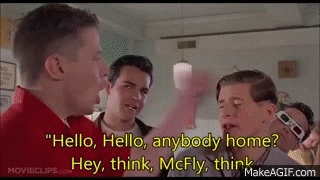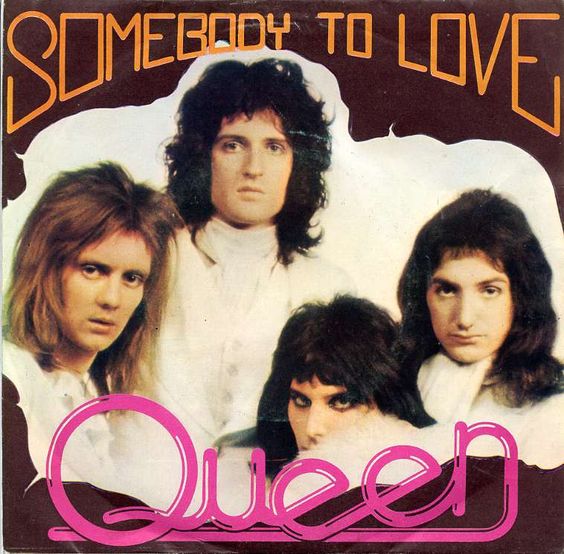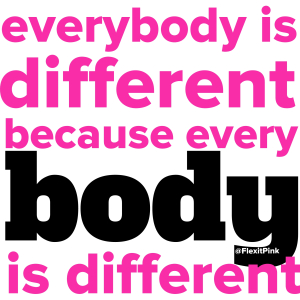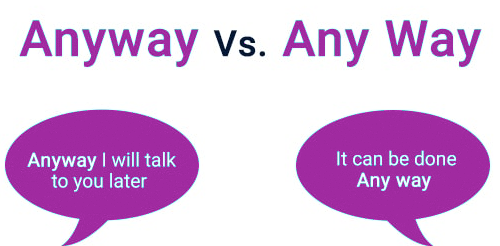Part two in my two part series where we’ll look at some words that can either be one word, or sometimes two! If you missed part one, check it out here. Although it seems like there are a few to get through here, most follow the same sort of format.
Contents:
Anybody vs Any body
The word you probably want here is anybody. Think of a horror movie—any horror movie—and someone hears something in the distance. They say “Is anybody there?”
Or maybe you need volunteers to join mathletes so you make a sign saying “Mathletes registration. Anybody welcome to join.”
You get the gist.

There are only two use cases I can think of where you might use any body. One is if you’re dealing with bodies, e.g. a funeral director, someone who works at a mortuary, a hospital worker even.
“Which body are you looking for?”
“Any body.”
The other is if you’re talking about a body of water. Any body of water.
Those two seem like unlikely scenarios so you most likely mean anybody.
Anyone vs Any one
Anyone means the same thing as anybody. That trick when a telemarketer calls you and you answer the phone and just don’t say anything? You’ll probably hear “Hello? Is anyone there?”
Any one is used when you’re giving a choice between a range of variables but you can choose only one:
- If any one person objects to this wedding, may they speak now or forever hold their peace
- If you want to have a chat about the new policy, please come and see any one of us in HR
- Choose any one of these pizzas as your free one
- Any one of you will do to fill in for mathletes.
If you replace any of those above with anyone, your sentence won’t make much sense:
- Choose anyone of these pizzas as your free one.
Yeah nah, no good. - Come and see anyone of us in HR.
Nope. Not quite right. However, if you wrote ‘anyone in HR’, this would make sense!
Life hack: Most of the time you can replace any one with any:
- Any of you will do to fill in
- If any person objects to this wedding…
Somebody vs Some body
Somebody can sometimes mean the same thing as anybody:
- Is somebody there?
- Is there somebody at the door?
But generally it gives a touch more specification than just anybody:
- Somebody at work played a prank on me and changed my desktop background. I guess it serves me right for not locking my computer when I went to the bathroom.
- I waved to somebody on my walk as they waved at me first.
- Somebody had to tell her the truth!
Try and replace the somebody with anybody. It won’t quite work. You’re providing a little more clarification than just anybody without actually specifying the person.
Some body would work in the same way as above with Any body and you’d only use this if you’re referring to bodies. I honestly cannot think of a sentence though. Maybe if someone has a body to pick up from the coroner but doesn’t quite know who they’re meant to be picking up:
“Yeah, I’m here to pick up some body.”
If this is not the scenario you find yourself in, it’s quite probable that you mean somebody.
People may well have looked at Freddie Mercury very differently had he called his song Some body to love.

Someone vs Some one
Someone means the same thing as somebody:
- Someone stole my lunch from the office fridge
- I thought I saw someone hiding in the bushes
Some one is not really used these days. Literally the only example I could find from google is “Some one thousand people attended the concert.”
So I guess unless your sentence resembles this, it’s highly likely you mean someone.
Nobody vs No body
Nobody means the same thing as no one:
- Nobody came to the party
- You’re just a nobody!
- I made an outgoing call at work but there was nobody on the other end.
Now, why is nobody one word and no one two? That seems contradicting doesn’t it? It definitely is not noone! Oh well. Take it up with whoever invented the English language.
With no body, we have the same scenario with dealing with bodies:
- We went to the suspect’s apartment but we found no body there.
This sentence varies considerably compared to:
- We went to the suspect’s apartment but we found nobody there.
Everybody vs Every body
Everybody means every person:
- Everybody knows what everybody means
- Everybody agreed with the CEO’s plans
- You know the words, everybody sing along!
Once again we have the same body scenario with every body, however, this one is a little more common. Gyms and fitness centres will often use little slogans and taglines like “Fitness for every body”. It’s clearly a play on words but it works, cause it’s referring to your body. So I guess watch out for this one because this one you might see more often that the other bodies I spoke of before. If you want to use the example of the person in the previous paragraph who’s on his first week of picking up bodies, he might say “I’m here to pick up every body”.
On song titles again, R.E.M.‘s song Everybody Hurts wouldn’t quite have had the same meaning had it been called Every Body Hurts. That might be a good name for a Health Fund campaign or something though….
One last incorrect example:
Please can every body confirm they’ve read the email.
No. Unless you’re employing dead bodies to work for you and respond to emails, you mean everybody.


Everyone vs Every one
Everyone means exactly the same thing as everybody:
- Everyone laughed at my accent on the first day of school
- This policy change will affect everyone who works here.
Every one is similar to Any one we saw above, but this time, you’re referring to each individual item, as opposed to choosing only one. Let’s use some similar examples as above:
- Come and have a chat to every one of us in HR.
This means that you need to chat to each person who works in HR. Ooh, sounds serious. - Every one of these pizzas is gluten free.
This means that every pizza is gluten free. - Every one of you who applied have made it to mathletes.
I guess you could say that everyone who applied made it.
Let’s look at an incorrect example:
The judges will taste each and everyone of your dishes.
That doesn’t make much sense. It clearly should be every one as we’re talking about each individual dish. Now, if it said:
The judges will taste everyone
that makes sense, but is wrong for so many other reasons…
Life hack: If you get confused, try replacing your everyone/every one with each. If you can, then it must be every one:
- Each of you who applied
- Each of our pizzas.
In case you missed it above, the opposite of everyone is no one. Not noone, not no-one, but no one. As you can see, this contradicts with this whole one word/two words post. So whether you use it like this:
I went to my lecture but no one was there
or like this:
No one person can ever make you feel that way
It’s still two words. So I guess this word is an exception to the rule.
Anyway vs Any way
Anyway means regardless, or nonetheless:
- Mum told me not to eat all the sweets but I did it anyway
- So I kissed him on the first date. What’s the big deal anyway?
Anyway is used a lot in casual conversation, especially at the beginning of a sentence. Used in this way, it’s used to continue an interrupted story, or to sometimes change the topic… You’ll often use it when things get awkward…. Check out the hilarious skit from Key and Peele, below.
- Anyway, enough about me, how are you? How’s your new job?
- Anyway, what were we discussing? Ah yes, that meeting we have to attend…

Any way means by any manner or any means:
- I don’t know of any way that can be done
- I need to get my son to read and I’m bribing him any way I can
- Is there any way we can move past this?
- Let me know if I can help in any way.
If Oliver Twist was written in today’s language, Oliver may well have asked the master this sentence instead:
“Is there any way I could have some more soup?”


Anymore vs Any more
This one is very similar to Anyway/Any way which we just looked at.
Anymore refers to time. How many times did you get in a stupid squabble with your friend in primary school and you said “I’m not friends with (name) anymore”? It basically means something that is no longer the case. That’s not to say you didn’t go running back to your best friend the very next day. But of course now we’re older and wiser, we don’t have these silly little squabbles anymore. See what I did there? Think of anymore to mean any longer. I don’t have feelings for my teacher anymore = I don’t have feelings for my teacher any longer.
Any more refers to more in quantity:
- Mum, do we have any more biscuits?
- I don’t want to cause any more trouble
- Does anyone need any more information?
- I don’t like this decision any more than you
- Taking the shortcut wouldn’t save me any more time than taking the normal route.
Let’s use an example of each:
Would you like any more bread? No; I don’t like bread anymore.
But be careful of scenarios like this:
- I don’t want any more to do with you
- I don’t want to see you anymore
If you get stuck, just use my any longer case, above:
- I don’t want any longer to do with you.
No, that doesn’t quite work, so it can’t be anymore and must be any more. - I don’t want to see you any longer.
Yes, that makes sense, therefore anymore is correct here.
Now I bet you’re thinking “What was with the header image? Has he forgotten to mention that?” No; no I haven’t. Everyone knows spreadsheets is one word. Spread sheets would probably refer to you laying out your bed sheets. Maybe? Even if I google it, it corrects me to spreadsheets. Let’s face it, it’s highly likely that this mug is designed for some IT nerd and/or office worker who likes to use Microsoft Excel. And who doesn’t?? Therefore, spreadsheets it is!
Related topics:

